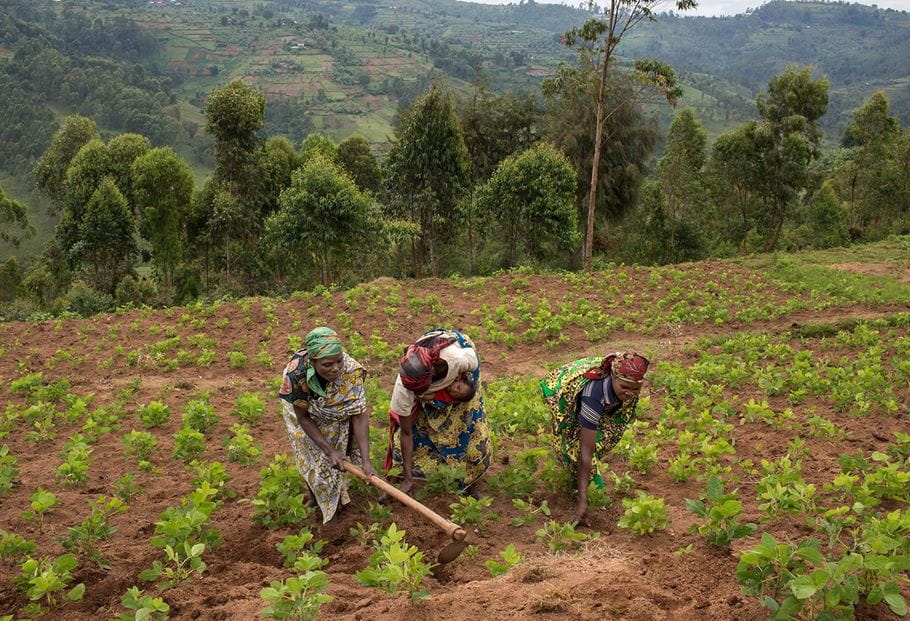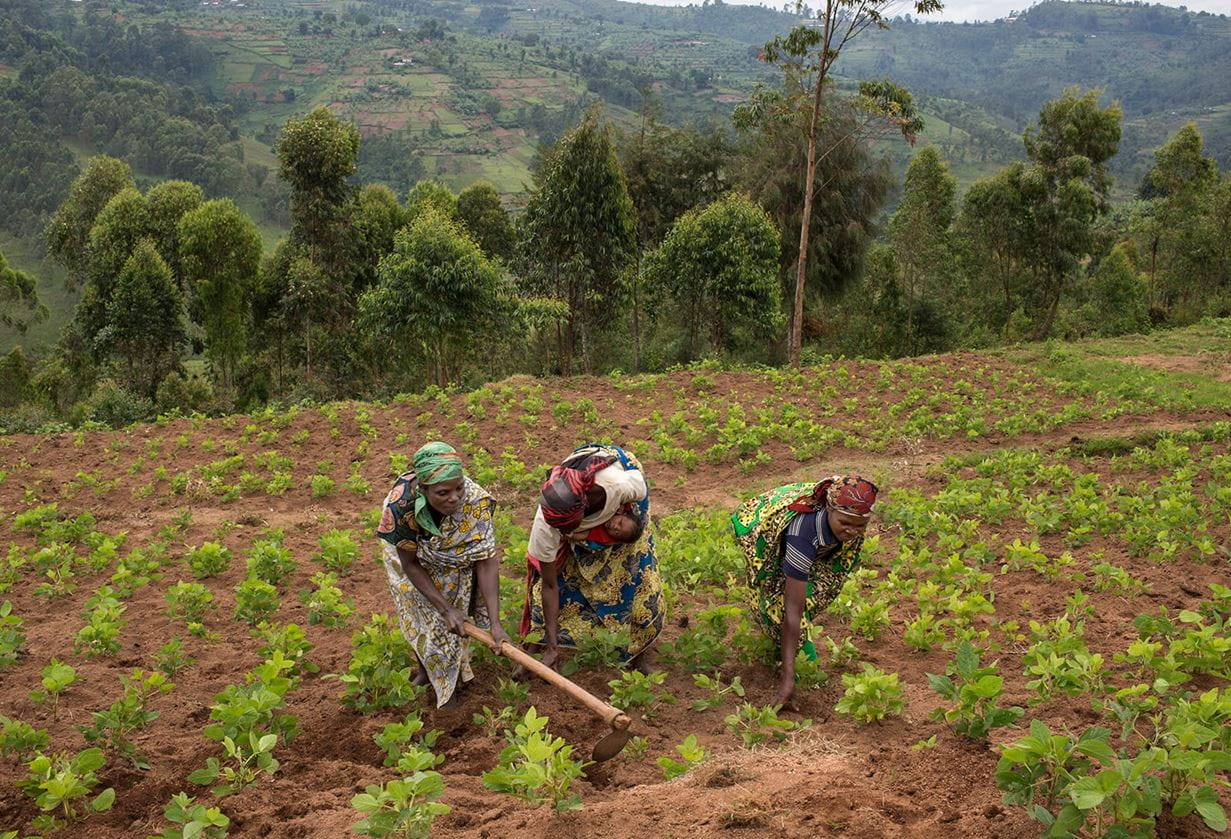Sacred soil: why harvest is holy
Written by Tearfund | 14 Sep 2018



Written by
Written by Tearfund
As harvest approaches, Tearfund's Gideon Heugh reflects on why dirt should be celebrated.
I stared at the weeds, the weeds stared at me – a suburban standoff. My t-shirt was sticky with sweat, my back was sore, and my skin was starting to turn the angry red of sunburn. This was my first day of gardening. And I was loving it.
Last summer, my wife and I moved out of our one bed flat in south-west London in search of more space. We were planning on starting a family, and dreamt of our children having a garden to explore, digging up worms that they hopefully wouldn’t eat.
We had found a terraced house in a leafy suburb with a small garden. But there was a problem: it had a major bindweed infestation.
Bindweed is the Terminator of the weed world. It mercilessly smothers other plants, twisting itself around their stems. Its roots can penetrate up to five metres into the ground, and if even a few centimetres of the root system is left in the soil, it will regenerate. Our new garden was covered in it.
It took two weeks of hard manual labour to clear it all, during which time I got very well acquainted with the soil. This isn’t something that usually happens in our increasingly urbanised lives. Our culture does its best to avoid dirt. We live in the most sanitised civilization in history, and as I put my hands into the soil among the weeds and the worms, I started to wonder if we are poorer for it.
Divine dirt
In the Genesis story, God forms the first human out of dirt. The name Adam (man in Hebrew) is from ‘adamah’, meaning ground. The organic matter in soil, ‘humus’ (not to be confused with the chickpea-based dip), has the same linguistic root as human, both from a word meaning earth.
We are intrinsically linked to the ground beneath our feet – we depend on it for our survival: we need food to live, and food needs soil to grow. Yet the modern world is doing its best to sever this link.
Think of the last meal you had. Where did it come from? Not the shop or restaurant – where was the food actually grown? If you had meat, where did those animals live? These days, a lot of us probably don’t know the answers to those questions.
Wendell Berry, the poet, philosopher and farmer (now there’s a job title) said that ‘eating is an agricultural act’. Everything we eat was farmed by someone, somewhere.


Sacred soil: a group of women farm the land in Burundi
Breakfast on the beach
A lot of the stories in Jesus’ life centre around food and drink. In one of them, his disciples had been fishing on the Sea of Galilee, and when they approached the shore they saw Jesus there, sitting next to a fire. He invited them to have breakfast with him. They gave him the fish they’d caught, which they ate along with some bread (John 21).
It must have been quite the meal. Fish straight out of the lake that they lived by. Bread that would have been baked that morning, probably just a stone’s throw away, made from wheat cultivated on land just outside the village.
How do we normally eat breakfast? For me, it’s often grabbed in a hurry as I rush out of the door to work. Food in our culture has become something to fuel our busy lives, rather than something precious, something that connects us to the land, to each other, and perhaps even to God.
We can sometimes think as Christians that spirituality only happens at church, or that it’s something ethereal and ‘out there’. But God is interested in the detail of our everyday lives, and this includes the food we eat. It’s not coincidence that the central ritual of Christianity – Holy Communion – is itself a meal.
Holy harvest
Harvest festival, at the end of September/early October, is an opportunity to remind ourselves of the importance of food and soil.
Harvest is, arguably, the one major Christian festival that has managed to avoid consumerism. It’s about gratitude. At harvest, we give thanks for what God has given us through the soil; we reflect on the fact that many people don’t enjoy the abundance of food that we do, and we give back.
Life is fragile. And the soil that sustains us is fragile too. Soil fertility is decreasing, with intensive farming upsetting the delicate ecological balance: the UN has warned that at current rates of degradation, the world’s topsoil could be gone within 60 years.
The ground is sacred, and shouldn’t be taken for granted. This harvest, let’s remind ourselves of the precious gifts that God has given us, and recommit ourselves to protecting them.
Let’s pray
Father God,
Thank you for the food that nourishes us, and for the soil that enables it to grow. Help us to not take these for granted. We lift up those who do not enjoy the abundance that we have, and we pray for your provision for them.
In Jesus’ name, amen.
Share this page
Share this page to spread the word and help support those in need.

Get our email updates
Learn about our work and stay in touch with Tearfund. Hear about our news, activities and appeals by email.
Sign up now - Get our email updates




.png)

